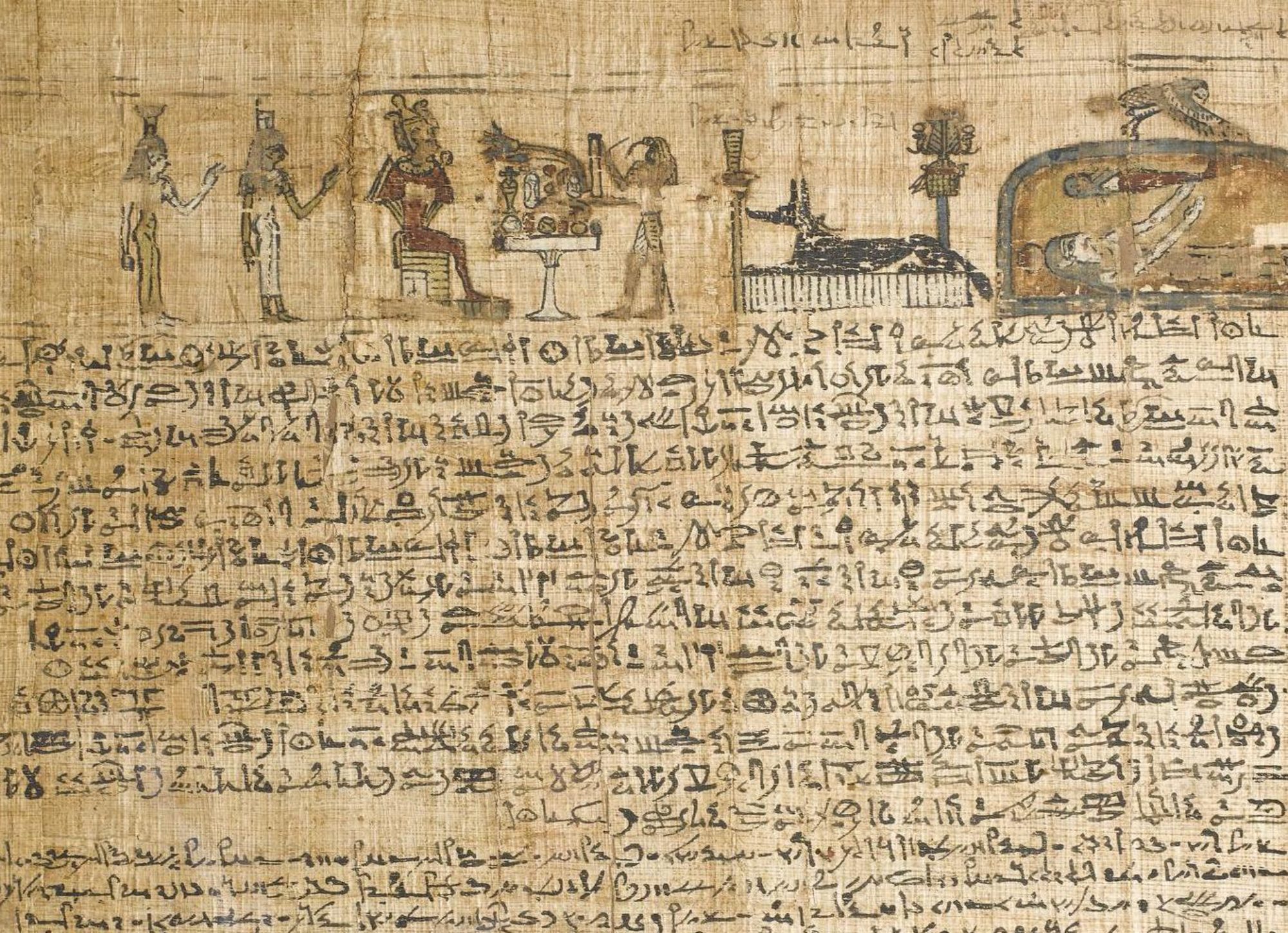This Thursday, February 18th, the British Museum is holding a free evening of events in connection with their ongoing series with BBC Radio 4, A History of the World in 100 Objects. It sounds like there will be lots of fun events over the course of the evening (18:30-20:30), especially a performance of the Tale of Sinuhe, bringing the dramatic adventures in the poem to life, as well as a talk about the Ramesses II colossus. I myself will be giving a couple of very brief, basic introductory workshops on hieroglyphs. There is also a lecture by Dr. Richard Parkinson at 18:30 on ‘Same-Sex Desire in Ancient Egypt’ and the tomb of Niankhkhnum and Khnumhotep (£5, concessions £3).
The event is listed on the British Museum website, but here is a more detailed schedule of all the activities:
Relax and listen to poetry inspired by Museum objects, recitations of ancient myths, or a talk on mathematics by author Simon Singh. Join a behind-the-scenes tour, view clay tablets in the historical Arched Room, listen to the sounds of Babylon, taste ancient beer, learn to decipher ancient scripts and take the ancient Egyptian civil service test. All events are free, some are ticketed Tickets are available at the desk in the Great Court, near the entrance to Room 4
PERFORMANCES & STORYTELLING
18.30–18.50 & 19.10–19.30
Babylonian fingers
Ahmed Mukhtar, Baghdad master of the oud (a Middle Eastern forerunner of the lute), gives a solo performance inspired by the Lachish Reliefs. Room 10a
18.30–19.00 & 19.50–20.20
The world above, the world below
Performance storyteller Sally Pomme Clayton explores the origin of writing and myth making in Mesopotamia. Drawn from the Epic of Gilgamesh, she brings to life a dramatic love story – one of the earliest pieces of literature, written down in cuneiform – which follows a lover’s search for her beloved in the Underworld. Room 56
19.15–19.45
Ozymandias
Patricia Usick, honorary archivist in the Department of Ancient Egypt and Sudan, gives a recital of the poem Ozymandias by Shelley, followed by a talk about the statue of Ramesses II in Room 4, and its relationship to the poem. Room 4
19.30–19.45
Centaur and Lapith
In response to the Parthenon sculpture depicting a Centaur and Lapith, an ensemble of graduates from Central School of Speech and Drama presents a performance exploring the idealised body of Greek sculpture, resistance to cultural absorption, and the ekstasis of sacred processions. Includes students from Trinity Laban and the University of Wyoming. Room 18
19.30–19.40 & 19.50–20.00
The Sphinx of Taharqo
Poet, novelist and Fellow of the Royal Society of Literature Carol Rummens reads contemporary verse she has written in response to the Sphinx of Taharqo. Room 65
19.45–20.30
The Tale of Sinuhe
The Tale of Sinuhe from c. 1850 BC is considered the supreme masterpiece of ancient Egyptian poetry. It will be performed by Gary Pillai and Shobu Kapoor, following their acclaimed recital of the poem at the Ledbury Poetry Festival. Introduced by the poem’s translator Richard Parkinson, curator in the Museum’s Department of Ancient Egypt and Sudan. Room 4
WORKSHOPS & DEMONSTRATIONS
TALKS
18.40–19.00 & 19.10–19.30
Hieroglyph workshop
A short introduction to hieroglyphs and the basics of ancient Egyptian writing with independent lecturer Margaret Maitland. Learn how to read symbols on the monuments of Ramesses the Great, hear how the ancient Egyptian language sounded, and learn how to write your name in hieroglyphs. Room 4
18.45–19.45
Ancient Egyptian civil service test
Test your wits against the ancient Egyptians and see if you can answer some practical questions based on the Rhind Mathematical Papyrus. With independent lecturer Patrick Mulligan. Room 61
18.40, 19.20 & 20.00
Special behind-the-scenes visit and cuneiform demonstration See ancient cuneiform tablets and a demonstration on cuneiform writing in the historic Arched Room with curator Jonathan Taylor, Middle East.
Meet at the West stairs (north end of Room 4) five minutes before each session. Each session is 25 minutes. Limited places, tickets available at the desk in the Great Court near Room 4
19.00–19.45
The story of ancient beer
Beer has been brewed since the 6th millennium BC and records indicate that beer was first brewed in Mesopotamia. The Beer Academy have picked four beers which take you through different eras of brewing techniques. This tasting and information session will tell you all about the changes through history in how the perfect pint was made. Great Court
Limited places, tickets available at the desk in the Great Court near Room 4
18.50–19.15
The myth of kingship in ancient Assyria
The throne room relief from the 9th- century BC palace of Ashurnasirpal at Nimrud encapsulates the mythology surrounding the king in ancient Assyria. Independent lecturer Lorna Oakes relates how it also acted as a warning to anyone contemplating usurping the throne. Room 7
19.05–19.40
Mathematical goddesses in Sumerian culture The world’s oldest poetry was made in ancient Sumer in southern Iraq, 4,000 years ago. The mathematics, writing and justice depicted in this pottery portray a vibrant world of gods and goddess, kings and commoners. In this talk, Eleanor Robson, Reader in Ancient Middle Eastern Science at the University of Cambridge, explores how ideals of mathematics, writing and justice were transmitted from the divine realm to the human – not by gods, but by goddesses. Room 56
19.45–20.30
Code breaking
Author, journalist and TV producer Simon Singh speaks on Greek mathematics, the Arithmetica by Diphantus, Fermat’s Last Theorem, ancient codes and code breaking, which he demonstrates with the help of the Enigma Cipher. Room 17
Programme subject to change. Photography and filming is allowed.
